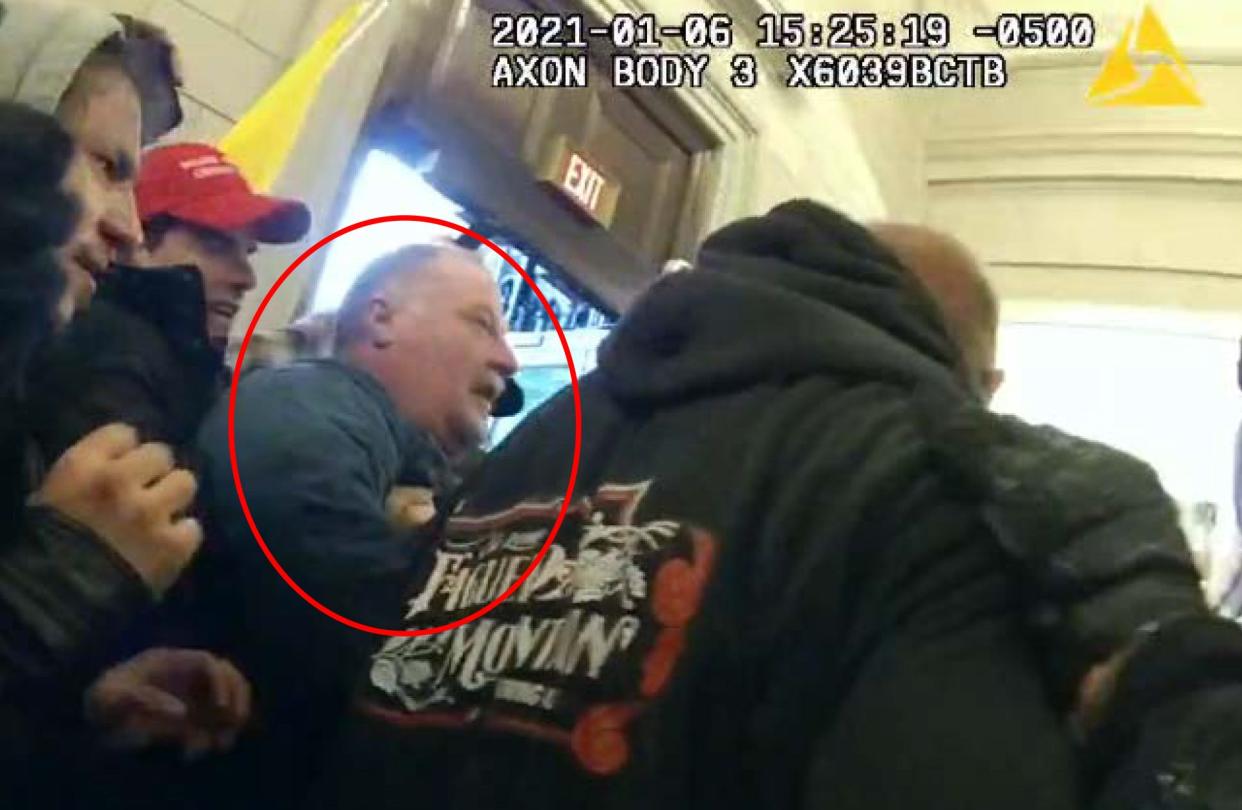Supreme Court questions Donald Trump obstruction counts while weighing immunity from all charges
WASHINGTON – The Supreme Court debated Thursday whether former President Donald Trump is immune from criminal prosecution. But the justices also kept their eyes on another case they’re considering: an obstruction charge against Trump that one described as "vague", and that's been used against hundreds of defendants charged in the Capitol attack on Jan. 6, 2021.
A former police officer, Joseph Fischer, has challenged the obstruction law as invalid for Capitol riot defendants. Congress adopted the 2002 law in the wake of the Enron scandal to discourage document shredding, but prosecutors contend it could apply to obstructing official meetings of lawmakers such as on Jan. 6.
If the high court limits the obstruction law for Jan. 6 defendants, it could help Trump, who faces two obstruction counts in his federal election interference case. More than 350 out of 1,350 Jan. 6 defendants face the same charge.
More: MyPillow CEO Mike Lindell, a Trump ally, has his phone seizure case rejected by Supreme Court
On Thursday, some justices signaled skepticism over the obstruction counts, even though they weren't part of the immunity arguments.
Justice Brett Kavanaugh said a “creative prosecutor” could use the “vague” obstruction statute “against a lot of presidential activities.”
And, in another reference to the obstruction law, Justice Neil Gorsuch asked federal prosecutors whether a president leading a “mostly peaceful protest in front of the Capitol,” delaying congressional proceedings, could be prosecuted if he had "corrupt intent."
'Yes,' president is subject to criminal law: prosecutor
The eventual answer from Michael Dreeben, a lawyer representing Justice Department special counsel Jack Smith, is that the hypothetical president could face a trial.
Dreeben said prosecutors would weigh whether the statute applied to the president's conduct, whether the conduct was protected under the First Amendment and whether the president had consulted with the attorney general before attending the protest – because legal advice could shield him from charges.
Gorsuch replied that the hypothetical president would have been told not to go and went anyway. What then?
More: When it comes to Trump Supreme Court bid for immunity, his test case is Richard Nixon
“Down at that level, I think what we are really asking is whether the president is subject to the criminal law,” Dreeben said. “Our answer is yes.”
Trump's lawyer, John Sauer, argued that presidents cannot be prosecuted for official acts after leaving office because the fear of facing charges would interfere with robust policy.
Sauer told the justices "we have here an indictment that seeks to criminalize objective conduct that falls within the heartland of core executive authority."

Fischer challenged his charge for entering the Capitol Rotunda
Fischer was charged with a half-dozen misdemeanors for entering the Capitol on Jan. 6, but the felony obstruction charge carries a 20-year maximum sentence.
Prosecutors charged him with running toward police officers while yelling profanity and crashing into the line before falling on the floor. Police pepper-sprayed Fischer and forced him out of the building. Fischer contends he entered the Capitol after Congress had recessed, wasn't violent and spent less than four minutes inside.
'Nobody knows what corrupt means': Gorsuch
Depending how Fischer's case is resolved, another former police officer, Thomas Robertson, is also challenging obstruction law because of the term "corruptly," which was the term that Gorsuch mentioned.
After the Supreme Court agreed to hear his appeal, federal judges began releasing prisoners with obstruction convictions early, to more closely match misdemeanor sentences.
"Nobody knows what corrupt intent means," Gorsuch said. "We've been around that tree."
This article originally appeared on USA TODAY: Justices question Jan. 6 obstruction charge during different case
